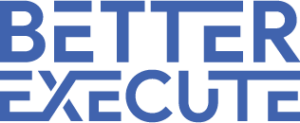Building a culture of accountability is essential for fostering a productive workforce. Establish clear expectations by aligning them with the company’s mission and values. Use frameworks like SMART goals and OKRs to create an empowering environment where employees feel responsible for their contributions. This approach helps drive sustainable growth and improve operations.
Key Takeaways
- Clarity in expectations promotes individual accountability and ensures everyone knows their duties.
- Aligning roles with company goals strengthens cooperation and makes mutual accountability instinctive.
- Regular feedback and proactive communication help adjust and maintain goal alignment.
- Balancing consequences and rewards motivates employees and ensures adherence to company standards.
- Leadership is vital in setting an example of accountability and investing in leadership development.
Crafting an Aligned and Accountable Workforce
Establishing clear workplace expectations forms the backbone of an accountable workforce. This process involves defining standards for behavior, effort, and outcomes. Such clarity ensures everyone understands their responsibilities. By setting these benchmarks, you create an environment where accountability isn’t just expected—it’s ingrained.
Communicating the organization’s mission, vision, and values is another crucial step. This alignment helps every team member connect their roles to the company’s overarching goals. When everyone knows the common objective, it enhances cooperation and commitment, making it easier for employees to hold each other—and themselves—accountable.
The articulation of clear expectations not only emphasizes responsibilities but also highlights the critical role each individual plays. This transparency promotes a culture where employees are encouraged to perform at their best, feeling both empowered and accountable for their contributions.
To further this, consider these actionable tips:
- Provide detailed job descriptions and performance metrics.
- Encourage open dialogue to ensure expectations are understood.
- Foster regular feedback sessions to realign goals and responsibilities.
These steps solidify an accountability framework that not only enhances productivity but aligns with Better Execute’s mission to foster clarity and sustainable growth in your business.
SMART Goals: The Backbone of Accountability
Using SMART goals can lead your team effectively by setting clear, actionable targets. Specific and measurable objectives allow everyone to know exactly what’s expected. This transparency ensures alignment with the company’s strategy, reducing uncertainties and confusion.
Objectives and Key Results (OKRs) complement SMART goals by aligning individual objectives with the broader company aspirations. Implementing OKRs promotes focus and direction. Here’s how to integrate these two frameworks:
- Specific: Define precise goals that leave no room for ambiguity.
- Measurable: Establish clear criteria for measuring progress.
- Attainable: Ensure goals are achievable, considering available resources and constraints.
- Realistic: Align objectives with the company’s strategic direction.
- Timely: Set deadlines to encourage accountability and urgency.
By using these frameworks together, you create a culture where individuals and teams understand their roles and contributions toward the company’s vision. Leadership’s openness in goal-setting fosters a sense of trust across the board, which is crucial for building confidence within teams.
My experience shows that organizations thrive when goals are transparent. Employees feel motivated knowing their work contributes directly to company success. Encouraging input at every level during the goal-setting phase can further nurture a shared sense of purpose.
Empowering employees with tools like SMART goals and OKRs isn’t just a strategy – it transforms the workplace into a hub of driven, accountable individuals committed to collective growth and success.
Ongoing Progress Monitoring and Adaptability
Effective progress tracking hinges on developing clear metrics and utilizing data analysis to check against goals. Regular data insights allow for timely adjustments, ensuring your business can adapt seamlessly to changing conditions. Here’s how you can ensure that adjustments align with your objectives:
- Develop Metrics: Identify key performance indicators that reflect your business goals accurately.
- Utilize Data Analysis: Regularly analyze data to provide insight into your progress and areas needing improvement.
Regular check-ins are vital for fostering a culture of accountability. Schedule consistent meetings where you and your team can discuss progress, resolve any issues, and decide on necessary changes. This approach not only keeps everyone aligned but also promotes collective problem-solving.
The Power of Commitment and Feedback
Creating a culture of accountability starts with a commitment at both individual and team levels. Employees should feel empowered to take responsibility not just for their own tasks but also for supporting their peers. This sense of shared responsibility leads to higher engagement and productivity.
To foster this environment, regular and meaningful feedback is essential. When feedback is constructive and well-timed, it can significantly boost professional growth. Employees can then see how their roles evolve within the company, leading to a deeper commitment and alignment with organizational goals.
Here are a few strategies to implement effective feedback and bolster team commitment:
- Create Clear Expectations: Employees should know what’s expected of them. Clarity ensures that they can align their efforts with the company’s objectives.
- Provide Consistent Feedback: Regular check-ins can help catch issues early and give employees the opportunity to adjust their course.
- Promote Peer Accountability: Encourage employees to provide each other with feedback. This not only reinforces accountability but strengthens team bonds.
Embedding these practices into your daily operations can transform your workplace into one where accountability thrives, thus driving sustainable growth and operational excellence.
Balancing Consequences and Incentives
An effective accountability culture requires a well-balanced approach between consequences and incentives. Defining clear outcomes for unmet expectations and emphasizing their role in promoting compliance are crucial. This balance not only motivates employees but also ensures adherence to company policies and standards.
When outlining consequences, it’s essential to communicate them clearly and consistently. Employees must understand the implications of failing to meet expectations in order to take responsibility. Consequences should align with company values and be fair to maintain trust and respect within the team.
To motivate and encourage compliance, establish a structured system of rewards alongside consequences. Here are some strategies to consider when setting up such a system:
- Performance-based Incentives: Employees appreciate recognition for their efforts. Implement bonuses or other rewards for those who consistently meet or exceed expectations.
- Recognition Programs: Highlight employees’ achievements publicly to encourage a culture of appreciation and positive reinforcement.
- Professional Development Opportunities: Offer training and growth opportunities as rewards for meeting key performance metrics.
Creating a robust system that includes both incentives and consequences helps employees understand their place within the company. It reinforces the importance of discipline while promoting positive behaviors. A balanced approach ultimately nurtures an environment where accountability thrives, fostering both individual and organizational growth.
Leadership as the Catalyst for Accountability
Leaders set the stage for an environment where accountability thrives by embodying the company’s culture, mission, and values. This dedication shows the workforce how deeply to internalize these principles. To enhance accountability across all levels of management, investing in leadership development programs is crucial. These initiatives, like mentoring and coaching, cultivate a mindset geared toward accountability. Consider the following strategies for empowering leaders:
- Mentoring Programs: Pair leaders with experienced mentors who can guide them in aligning leadership styles with organizational values.
- Coaching Sessions: Facilitate sessions that focus on personal and professional growth, encouraging leaders to reflect on their actions and decisions.
- Feedback Mechanisms: Implement regular feedback loops to help leaders stay aligned with the company’s mission and values.
By consistently prioritizing these elements, leaders can effectively inspire a culture of accountability that drives sustainable growth and operational excellence.


